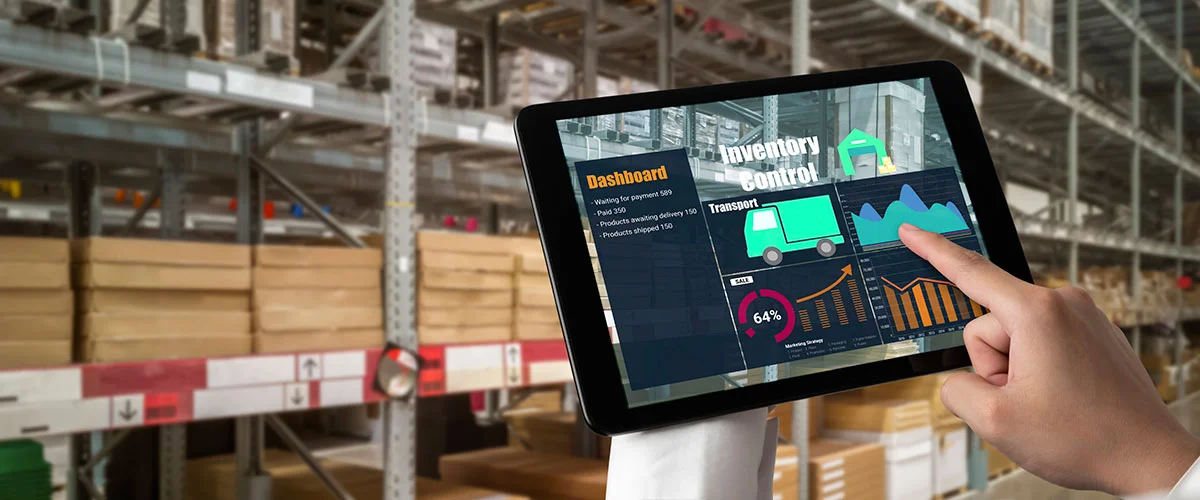
Sustainability and Inventory Management: How Enterprise E-commerce Inventory Management Systems Contribute to Eco-friendly Practices for Large Brands and Sellers
The importance of using eco-friendly products and sustainable methods of production has now become too large to ignore. It is no longer merely a good practice; sustainable operations have become the norm.
It can be difficult for e-commerce brands to integrate eco-friendly practices into their operations, especially if they have not done it before. Inventory management systems play a vital role in this pursuit by enabling businesses to adopt sustainable practices throughout their supply chain.
In this blog, we will explore how enterprise e-commerce inventory management systems contribute to promoting environmentally friendly practices for e-commerce brands. We will discuss their potential in reducing waste, optimising transportation, and encouraging sustainable product sourcing. Keep reading to find out more.
Reducing waste
One of the significant environmental challenges is managing and minimising waste. A robust enterprise e-commerce inventory management system provides tools and functionalities that help in reducing waste at various stages of the supply chain.
- Accurate demand forecasting
Enterprise inventory management systems leverage historical data, customer behaviour analysis, and market trends to generate accurate demand forecasts. This ensures that you order and produce the right quantity of products, reducing the risk of overproduction and subsequent waste. - Just-in-time inventory
By adopting a just-in-time inventory management approach, you can minimise excess inventory and avoid product obsolescence. Inventory management systems can enable you to closely monitor demand patterns and adjust your production and procurement processes accordingly. This, in turn, will ensure that inventory levels are optimised, and waste is minimised. - Product life cycle management
Inventory management systems provide insights into the product life cycle, including shelf life, expiration dates, and seasonal demand patterns. By effectively managing inventory based on this information, you can minimise waste by ensuring that products are sold or used before their expiration or obsolescence.
Optimising transportation
Transportation is a significant contributor to greenhouse gas emissions and environmental degradation. E-commerce inventory management systems contribute to sustainability efforts by optimising transportation processes in the following ways:
- Consolidated shipments
Enterprise e-commerce inventory management systems allow you to consolidate shipments by optimising order fulfilment and delivery routes. Having complete visibility over the entire process means you can club shipments together. By reducing the number of shipments and maximising truckload capacity, businesses can minimise fuel consumption, carbon emissions, and transportation costs. - Warehouse proximity
This is especially true for larger e-commerce brands who store their inventory across multiple warehouses in separate locations. Through real-time data analysis, enterprise inventory management systems can identify the optimal placement of warehouses in strategic locations. By placing warehouses closer to customer clusters or demand hotspots, you can reduce the distance travelled for order fulfilment, leading to shorter transportation routes and lower carbon emissions. - Last-mile delivery optimisation
Enterprise e-commerce inventory management systems can enable you to streamline last-mile delivery through route optimisation algorithms. By identifying the most efficient delivery routes and minimising travel distance, you can reduce fuel consumption, emissions, and overall transportation-related environmental impact.
Encouraging sustainable product sourcing
Large e-commerce brands and sellers have the power to influence sustainable practices by sourcing products responsibly. Here, advanced inventory management systems play a crucial role in facilitating sustainable product sourcing, by delivering the following capabilities:
- Supplier evaluation and monitoring
Inventory management systems provide visibility into supplier performance, thus allowing you to assess and monitor suppliers based on their sustainability practices. If you are focusing on sustainable practices, you cannot collaborate with suppliers who do not share that mindset.
By partnering with suppliers who adhere to environmentally friendly standards, you can ensure sustainable sourcing and reduce their ecological footprint. - Ethical and eco-friendly product attributes
Inventory management systems enable you to capture and manage product attribute data, including environmental certifications, eco-friendly materials, and sustainable manufacturing processes. By highlighting these attributes on product listings, you can inform and influence consumers’ purchasing decisions, thus promoting sustainability. - Inventory traceability
Inventory management systems enable end-to-end traceability of products, allowing you to track the origin, manufacturing processes, and transportation routes of each item. This transparency helps optimise shipping to reduce environmental impact and costs, identify opportunities for improvement, and can encourage you to work with suppliers who prioritise sustainability.
Conclusion
The integration of sustainability into inventory management practices is essential for large online brands aiming to reduce their environmental impact and align with customer expectations. This transition can be seamless if you use a good enterprise e-commerce inventory management system like Ordazzle, an end-to-end enterprise e-commerce management platform. Get in touch with us to know about Ordazzle’s capabilities.



